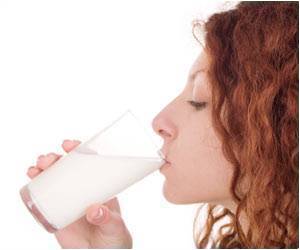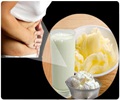
Learning how milk affects offspring was the subject of the Lactation Biology Symposium, held as part of the 2012 Joint Annual Meeting in Phoenix, Arizona.
The presentations focused on epigenetics, or how gene expression changes based on factors like environment or diet. Epigenetic changes modify when or how certain traits are expressed.
The first presenter, Dr. Frank Bartol from Auburn University, explained how certain hormones, called lactocrines, in pig's milk affect gene expression in piglets.
Bartol said lactrocrines could modify gene expression in the reproductive systems.
However, he said that the specific effects of lactocrines are still being studied.
Advertisement
According to Hammon, the milk produced in the first few days after birth, called colostrum, contains growth factors that help young calves better digest and absorb lactose and glucose.
Advertisement
Studying milk is important not just for studying future fertility and nutrition, but future milk production as well.
Dr. Paul Kenyon, from Massey University in New Zealand, suggested that either underfeeding or overfeeding milk could reduce milk production in the offspring.
Though the differences in milk yield were small, there could still be an economic difference for dairy farmers.
The research could have implications for human health as well.
Dr. Katie Hinde, from Harvard University, revealed how the components of mother's milk could alter infant behavior and cell development through epigenetic mechanisms.
In Hinde's studies of rhesus monkeys, infants who had mothers producing milk higher in milk energy and cortisol were more active, playful, exploratory and bold.
"Milk is, therefore, not merely food that allows the body to grow but it contains constituents that help build the brain and provide the energy that allows infants to be behaviorally active," K. M. Daniels et. al. wrote.
The findings are published in the Journal of Animal Science.
Source-ANI














